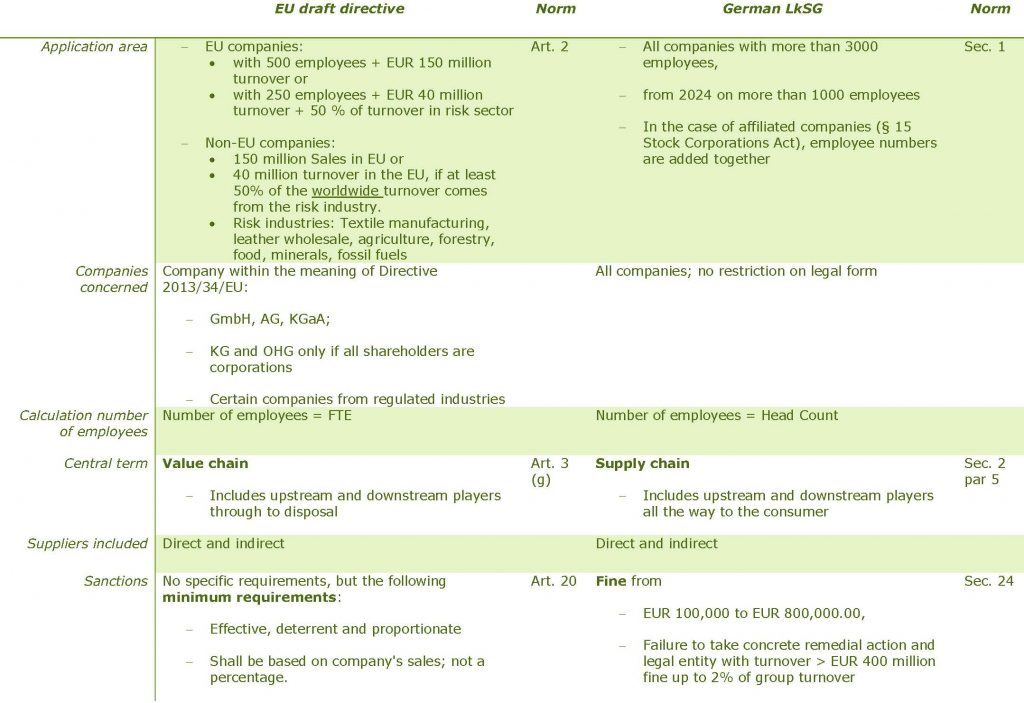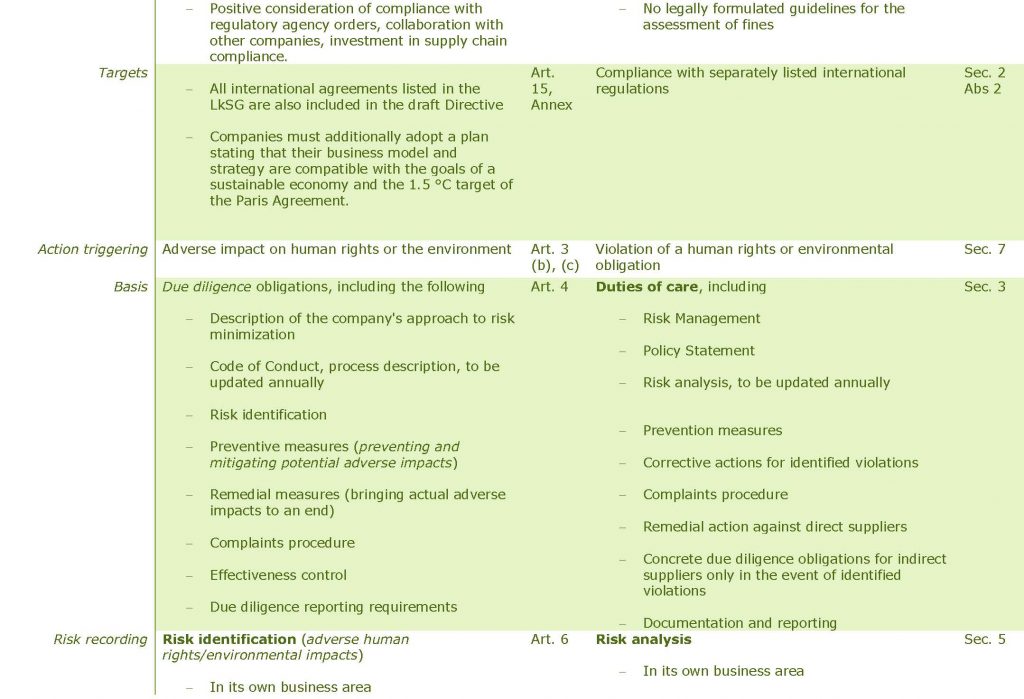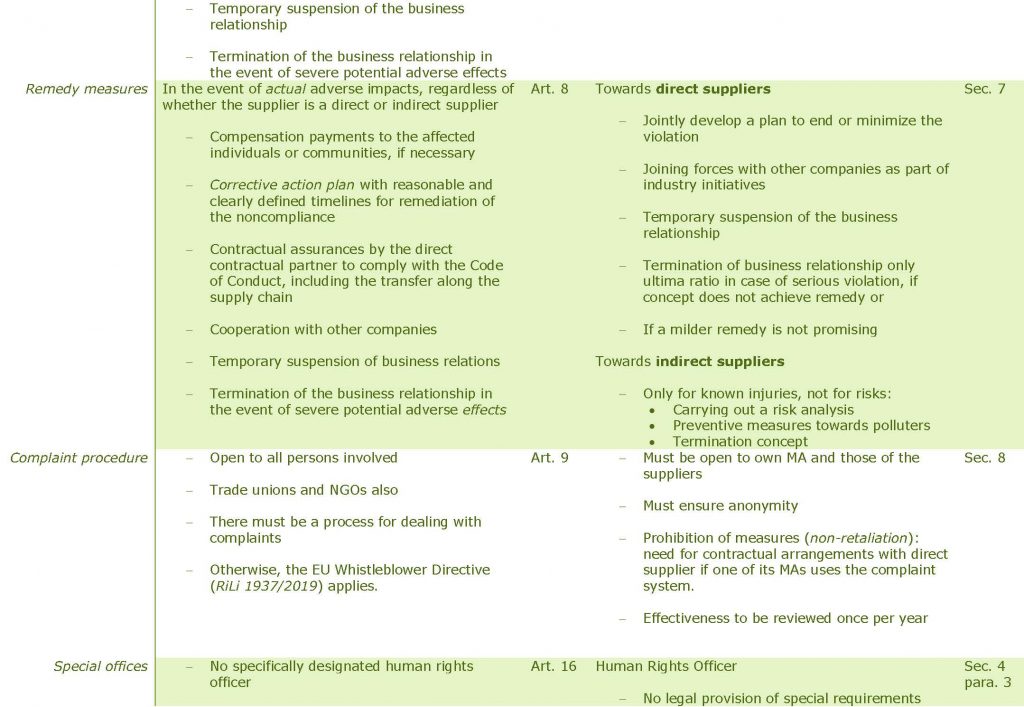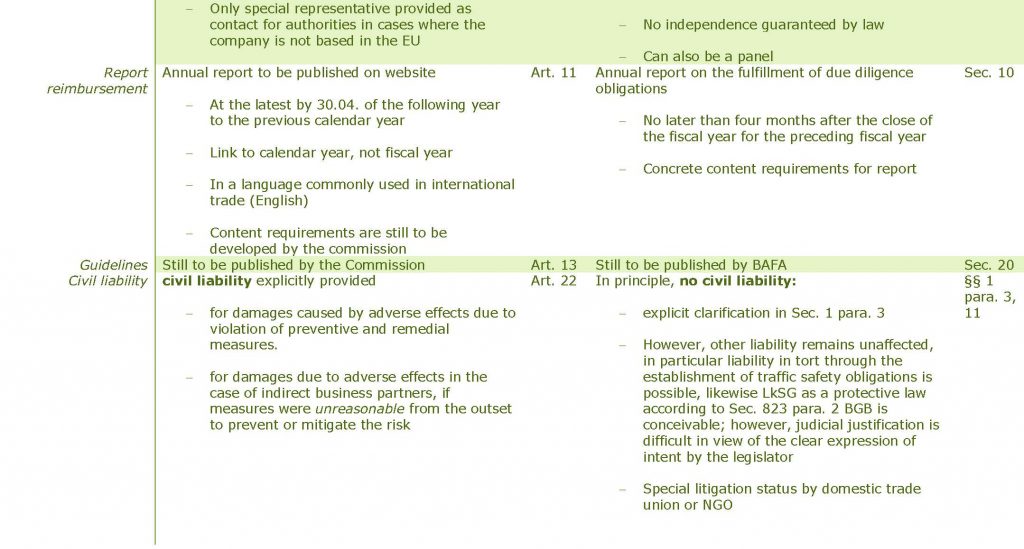Draft European Supply Chain Directive
Draft European Supply Chain Directive – significant differences to the German Supply Chain Act
Back in February, the EU Commission published a draft Directive on Corporate Sustainability Due Diligence. It takes up key ideas and regulations of the German Supply Chain Due Diligence Act (LkSG), which will come into force in a staggered manner from January 1, 2023.
The German LkSG was, of course, in many respects the model for the European regulation since the German legislator has always striven for a European regulation, despite its advance. After all, German companies should not suffer any disadvantage compared to competitors, at least in a European comparison, if only they are subject to the strict regulations of the LkSG. The draft directive not only takes up this idea of a level playing field, it also takes it further when it declares the regulation applicable to all companies worldwide insofar as these companies exceed certain sales thresholds in the EU.
Compared to German law, many aspects of the draft directive appear to be more stringent. For example, the employee threshold required for applicability is significantly lowered, civil liability is imposed, which German law still expressly excludes, and effective and deterrent sanctions are required. In other places, however, the draft falls short of the German regulations. The main differences are as follows:
- Thus, the number of employees for determining applicability is calculated on the basis of FTEs. German law determines applicability according to the absolute number, which disadvantages commercial enterprises with a large number of part-time employees in particular.
- German law also takes affiliated companies into account when determining the number of employees (Section 15 of German Stock Corporations Act). In determining the scope of application, the Directive considers each company individually and includes subsidiaries in which a controlling influence exists in the scope of application if the parent company is obliged to do so. This has major implications for group structures where the holding company itself has only a few employees. If it is not obligated, neither will its subsidiaries be which themselves do not exceed the threshold.
- In addition, the draft directive only covers companies of certain legal forms. Partnerships in particular are not covered to the same extent.
- In addition, the draft directive takes into account certain sales thresholds. These are already set at EUR 40.0 million if at least 50% of sales are generated in certain high-risk sectors, including textiles, fossil fuels and food. The stubborn link to sales without consideration of profit and margins again leads to a disadvantage of the retail sector.
- The draft directive provides for the obligation to suspend and – in the case of serious violations or risks – to terminate the business relationship in the event of a potential adverse impact on human rights and the environment, not only in the event of an actual violation. German law provides for this only in the event of actual violations and only as last resort.
- In addition, the Directive provides in Art. 15 that certain larger companies must draw up a plan to ensure that their business model and strategy is compatible with the transition to a sustainable economy and the 1.5°C target of the Paris Agreement. This means that the climate targets of the Paris Agreement under international law will now also be binding at the corporate level. With this new obligation, companies that fail to draw up a plan on time or draw up an inadequate plan may be the focus of climate lawsuits even more in the future.
- The material catalogue of international agreements to be observed in the supply chain and the prohibitions laid down therein also massively exceeds the German LkSG in the draft directive. The draft directive covers a total of 21 human rights agreements (instead of 11 in the German LkSG) and a total of 12 international environmental agreements (instead of 3 in the German LkSG).
We have presented the main differences between the German regulation and the European draft directive in the following synopsis:




